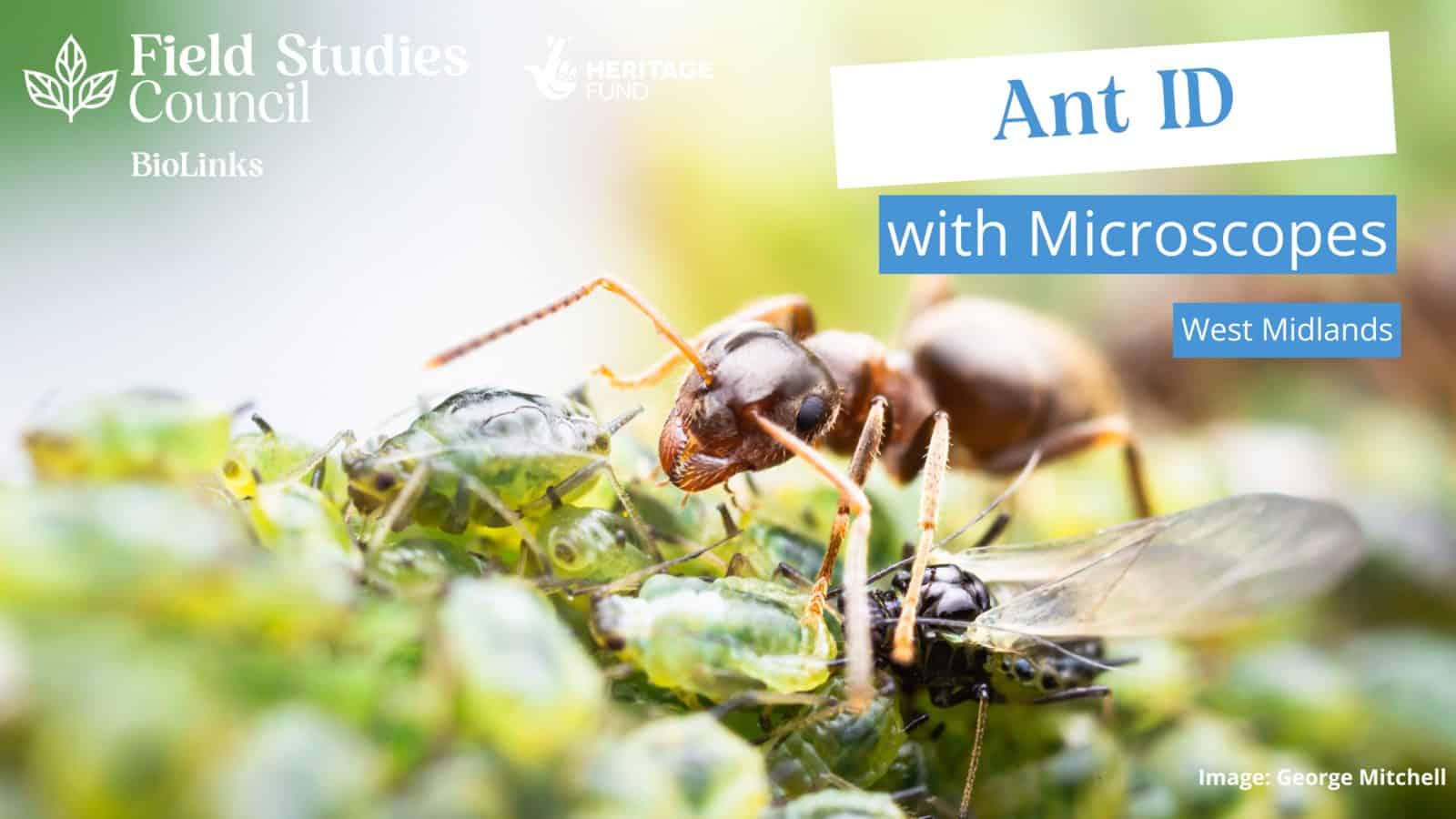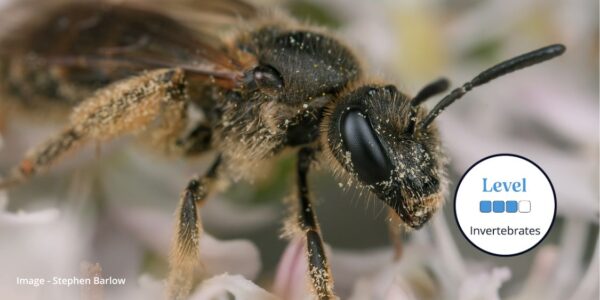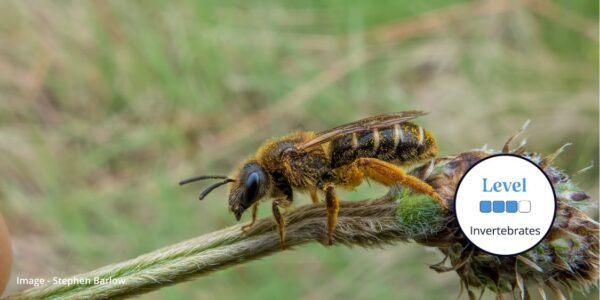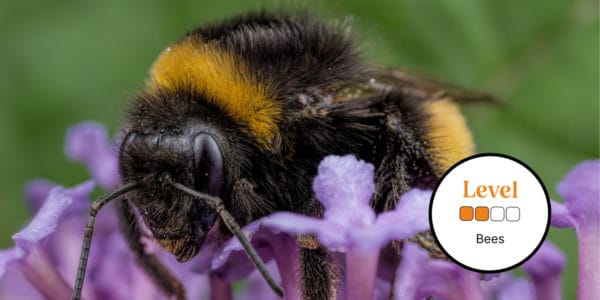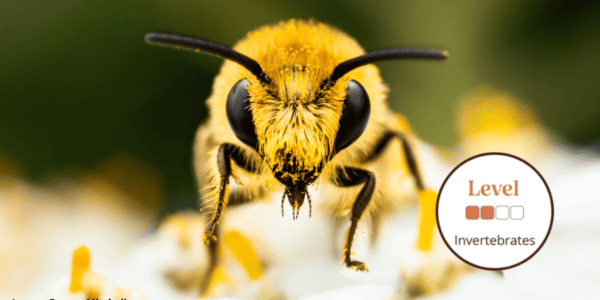Ants are some of the most ubiquitous insects in the world and are found on every continent apart from Antarctica. There are around 60 ant species in Britain, several of which require microscopic examination in order to reliably identify to species. Join us to take your ant identification skills to the next level.
This course provides an introduction to identifying ants to species using microscopes and identification keys. The two-day course includes short presentations introducing the morphological features used to identify specimens to species level, followed by practical sessions guided by our expert tutor. During the lab sessions, you will explore a wide variety of different ant species, including workers, queens and males.
Through a combination of taught classroom content and lab-based practical sessions, learners will gain confidence in using the identification keys and preserved specimens to identify ants to species level.
-
- Certificate upon course completion.
- Please email [email protected] if you have any questions.
- Please note that this course will involve using specimens that have been killed and preserved.
This course is aimed at adults only and course attendees must be at least 18 years old in order to attend.
What will be covered during this course?
- The external (morphological) features used in ant identification.
- How to work through the identification keys to determine ant specimens accurately to family, genus and species.
- Practical experience observing ant ID features using a microscope.
- Guidance on how to take your interest further and contribute to recording schemes.
See the ‘Example Timetable’, ‘What’s Included’ and ‘Before You Attend’ sections below for more information about this course.
Course Fees
Subsidised Price: £20 Subsidised by the FSC BioLinks project for non-professionals eg. volunteers, biological recorders, wildlife gardeners, amateur naturalists and students.Available to UK residents only. Select ‘Attendee Subsidised: In Person’
Regular Price: £150 For professionals and residents outside of England. Select ‘Attendee: In Person’. Sold Out
Tutor: Richard Becker
Richard Becker is a farmer, photographer and naturalist with a lifetime interest in natural history, particularly insect behaviours. He is an expert in aculeate hymenoptera (bees, wasps and ants), with a particular passion for ants. As a professional photographer, Richard specialises in photographing invertebrates and supplies images to several international agencies. His photographs have been used in publications worldwide. Formerly a dairy farmer in Sussex, since 2000 he has been working an organic beef farm in the hills of Powys, mid-Wales.
Covid Measures
In order to keep our customers and staff safe we ask that anyone attending our centres:
- wears a face covering when in shared indoor space (unless exempt).
- maintains social distancing.
- cleans their hands regularly.
- takes a Covid-19 test before they arrive.
Example Timetable
- Please arrive in time for the course to start promptly at 10:00 am.
- Refreshments will be available from 9.45 am.
- The course will end at 4:00 pm.
What's Included
- 12 hours of tuition.
- Certificate of attendance.
- Access to a microscope, identification resources and specimens.
Bursaries and Subsidies
FSC BioLinks
FSC BioLinks is an exciting project for FSC in the South East and West Midlands, bringing together existing volunteers with skills in biological recording and identification, and new volunteers.
This project provides subsidised training courses, learning opportunities and digital tools focussed on invertebrate identification for anyone involved or interested in biological recording, to build and strengthen the community.
Invertebrates provide us with many useful ecosystem services, like pollination and decomposition, which we cannot survive without but their numbers are declining. Few people know how to identify or record invertebrates meaning there is a lack of data.
We are delighted to have been awarded a grant of £1.23 million from the National Lottery Heritage Fund for this project.
Before You Attend
Getting to FSC Bishops Wood
FSC Bishops Wood, Crossway Green, Stourport-on-Severn DY13 9SE
- By car from Kidderminster: (M5, A38, A449 southbound) On the M5 heading southbound coming off at junction 5, taking the third exit on the roundabout to get onto the A38. at the first roundabout take the third exit onto Kidderminster Road going straight over the next roundabout sticking to Kidderminster Road. At the second left turn to follow Doverdale Lane. Once you have come to a sign turning right onto the A449 take it until you get to the Mitre Oak pub on your left. Take the first exit on the roundabout onto Bishops Wood Lane, finally taking the first left on you will arrive at Bishops Wood Field Centre.
- By car from Worcester: (M5, A449 northbound) On the M5 heading northbound, take Junction 6 to Worcester/ Kidderminster taking the second exit heading for the A449 northbound, continuing for 9 miles. At the roundabout with the Mitre Oak pub take the first exit onto Stourport Road. Take the first left onto Bishops Wood Lane, finally taking the first left on you will arrive at Bishops Wood Field Centre.
- By train: The nearest station to the centre is Hartlebury. From here, it is a two-mile walk to FSC Bishops Wood, or a short taxi ride.
What to bring
- Notebook and pencil
- Lunch
- Any ant specimens that you'd like verified (tutor availability during the course permitting)
Please note that this course will involve using specimens that have been killed and preserved.
There will be a member of staff with first aid training and access to a first aid kit on site. If you have special medical requirements please let us know as soon as possible so we can plan the course.
Sorry this course has ended

